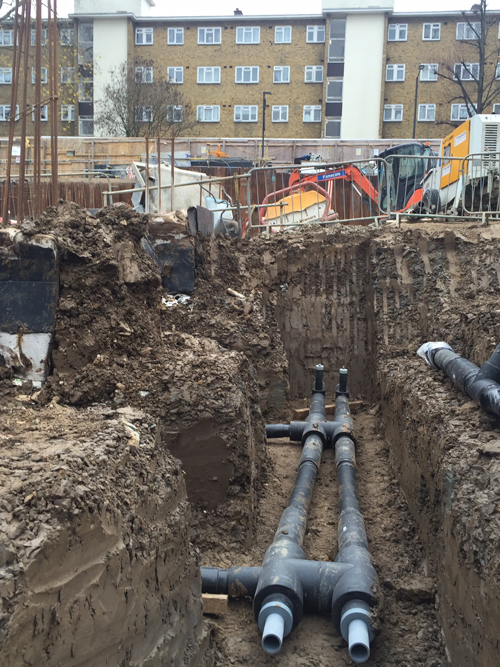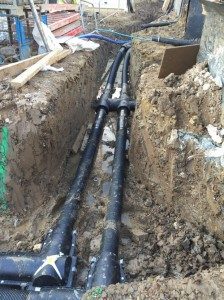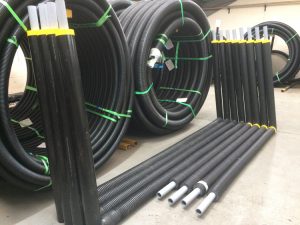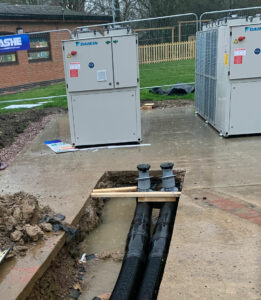
As interest grows in district heating applications using pre-insulated polybutene (PB) ‘plastic’ pipe, specifiers are now turning their attention to the control mechanisms that can add value beyond thermal efficiency and system life cycle cost.
Polybutene products such as Flexalen are acknowledged in research studies to reduce heat loss potential over steel networks. The effect is the ability to reduce boiler source temperature (and enhance efficiency) and to commit to more extended replacement schedules because plastic networks do not suffer from the same corrosive limitations as steel.
This creates a number of benefits for scheme owners and operators – improved overall energy efficiency, lower long term system life cycle costs and extended operational periods between pipe replacements.
Now PB network specialist Flexenergy has developed a new system to add more effective control to the ‘plastic’ proposition through its V-Flex valve range – an innovation equally applicable to community heating schemes, biomass CHP and geothermal and heat recovery networks.
“V-Flex introduces new levels of control to district and community heating schemes, enabling sectors to be easily isolated for maintenance and network extension”, explains Sandy Fairley, Sales Director at Flexenergy. “The system transforms the ability of operators to control and service PB networks by delivering zonal control via pre-insulated valve technology that can be fusion welded directly to the main network.”
The valve incorporates a key-operated steel ball valve inside a polyethylene casing, insulated by PUR foam, and incorporates PB tails for a fully welded connection to the Polybutene pipe network.
This is the first pre-insulated valve system to be available for plastic pipe systems and will be welcomed by DHS designers for providing much greater control over heat networks. In effect, it means that the valves can be used to shut down entire networks or to isolate individual streets/ properties. This makes network maintenance much easier and can also facilitate network extension.
The valves can be specified for single or twin pipe applications and come in a number of chamber sizes (to accommodate depth variation) in order to provide flexibility in network or zonal control. Each chamber provides easy access to the valve and includes a lockable lid as an option.



